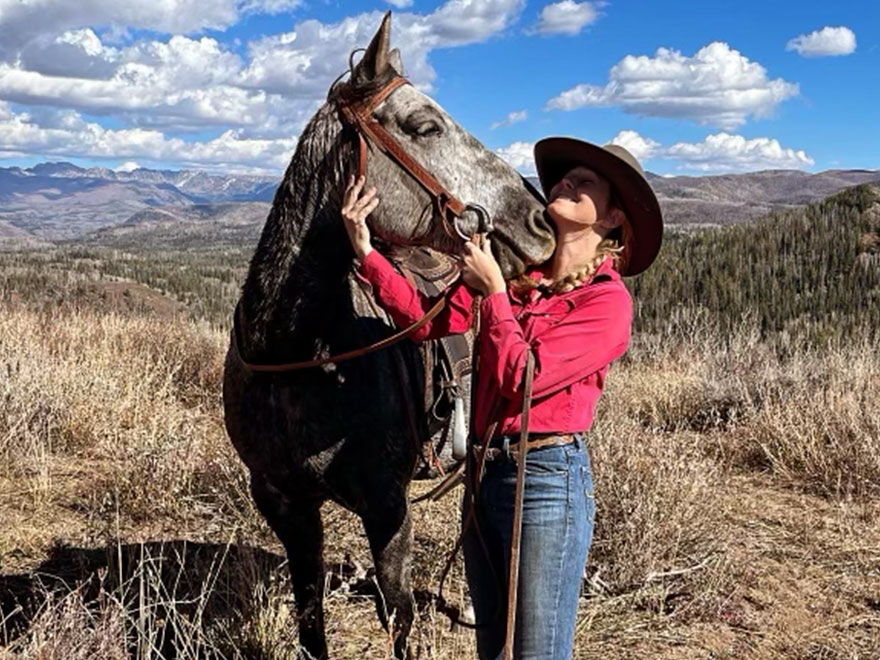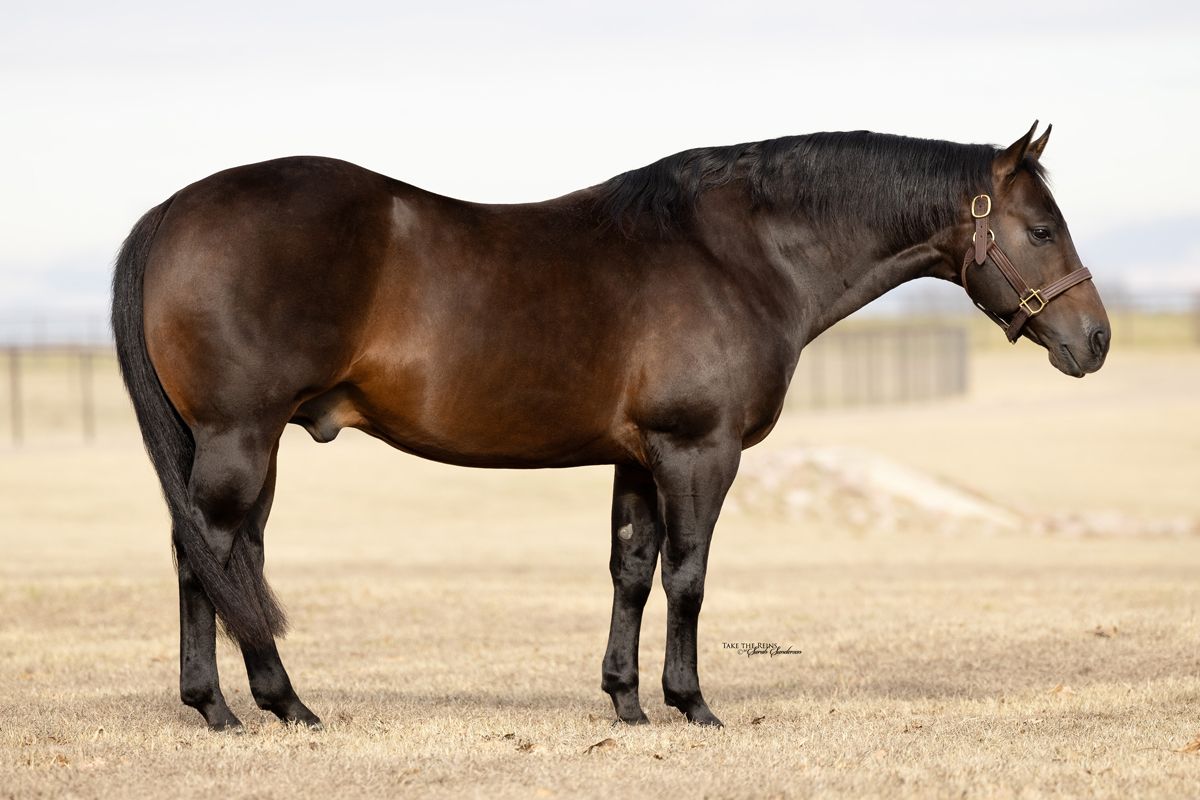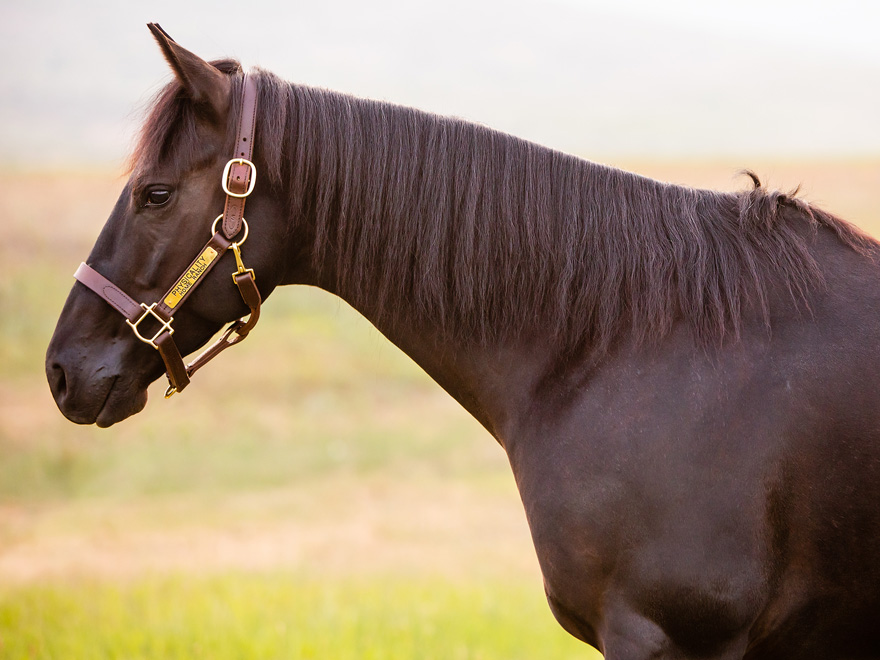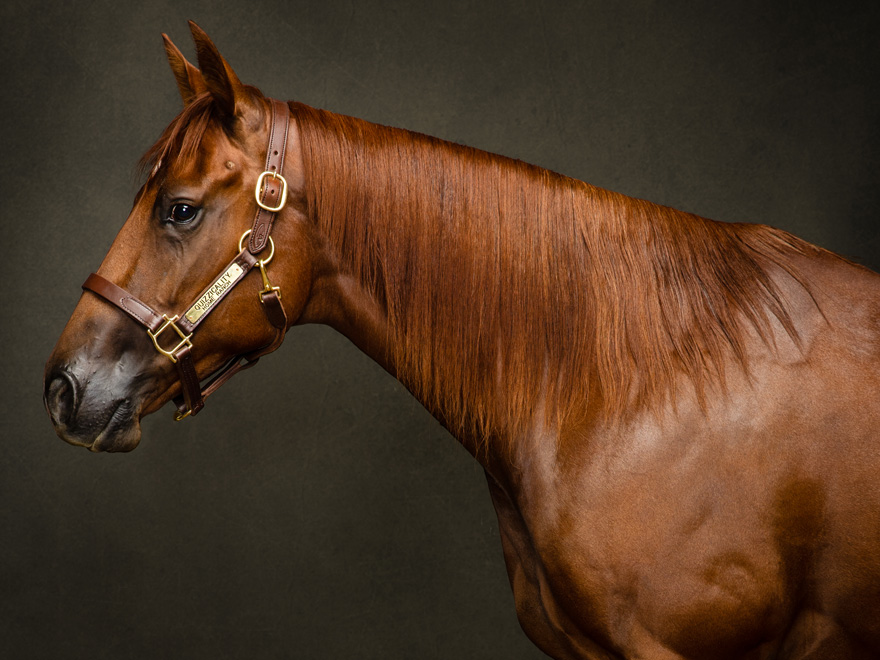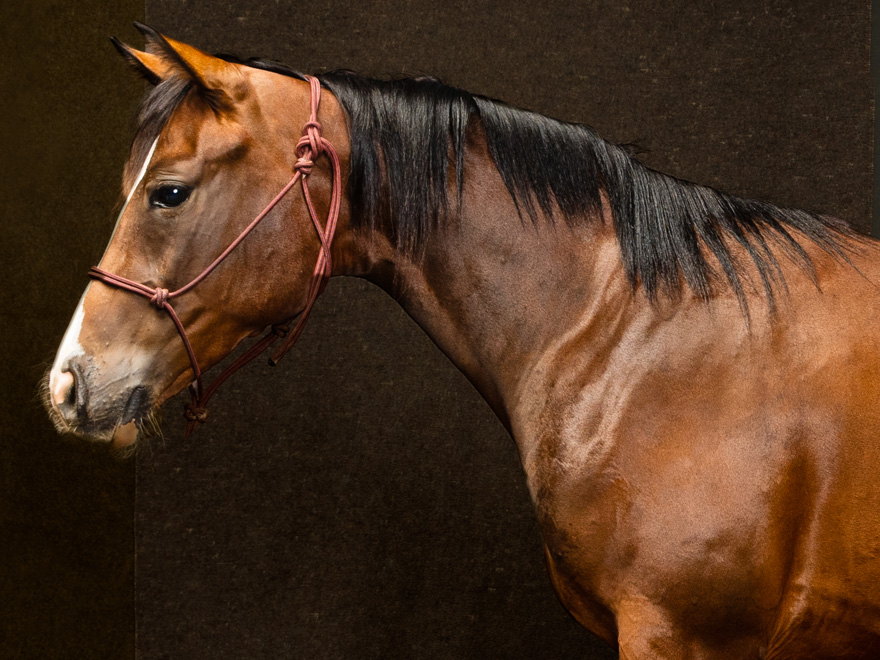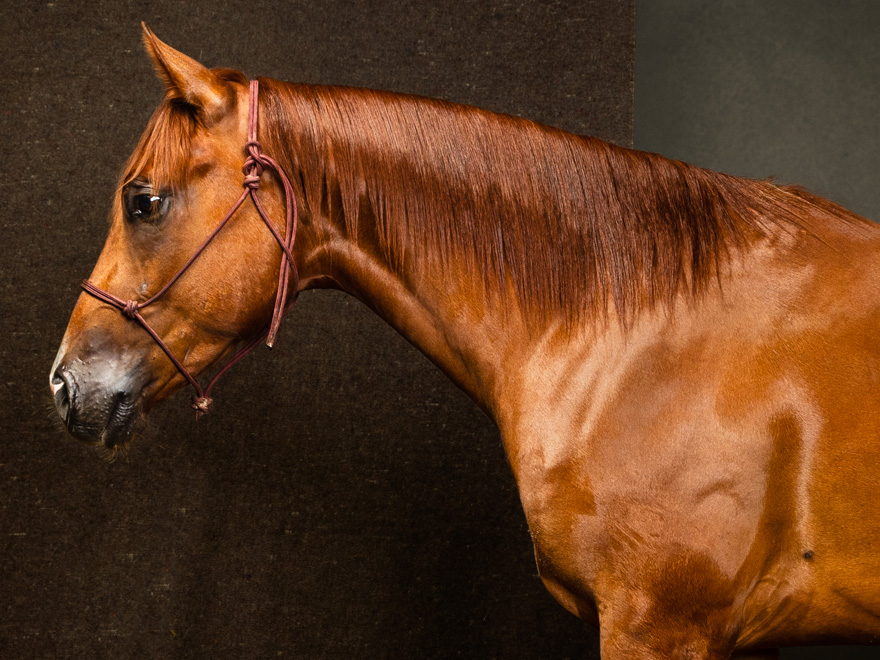The Home Ranch Horse Program
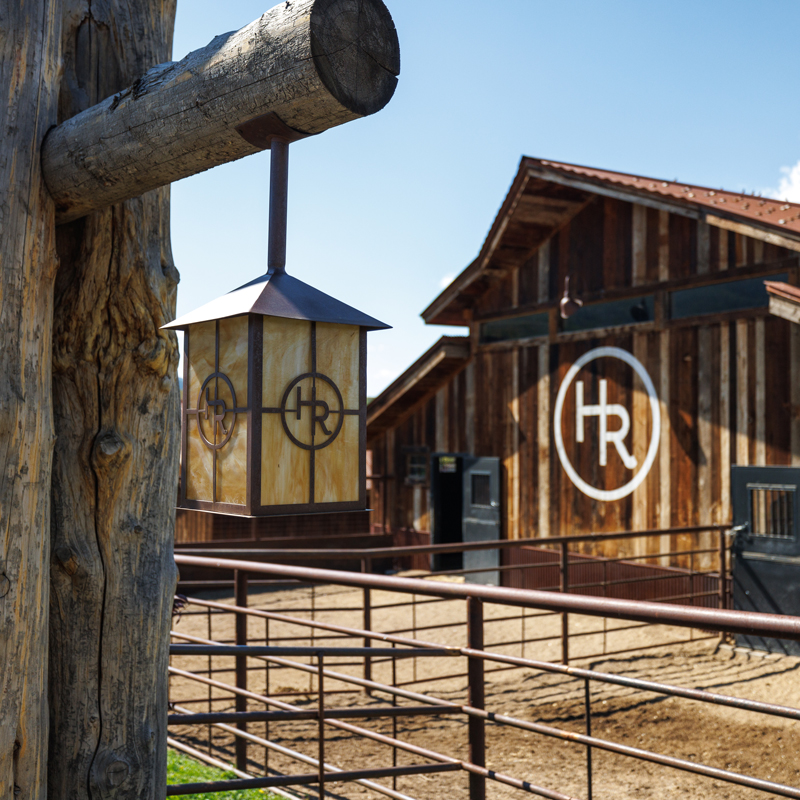
The Home Ranch Performance Horses
What makes The Home Ranch’s performance horses the best at what they do? For starters, they are selected young — typically as yearlings or two-year-olds — for their bloodlines, natural cow sense, and exceptional athletic potential. Through our personalized program, our elite performance horses are trained to deliver top-tier results, blending speed, precision, and versatility for success in both ranch work and competitive events — including The National Reined Cow Horse Association (NRCHA) Snaffle Bit Futurity. Ready to meet our champions?
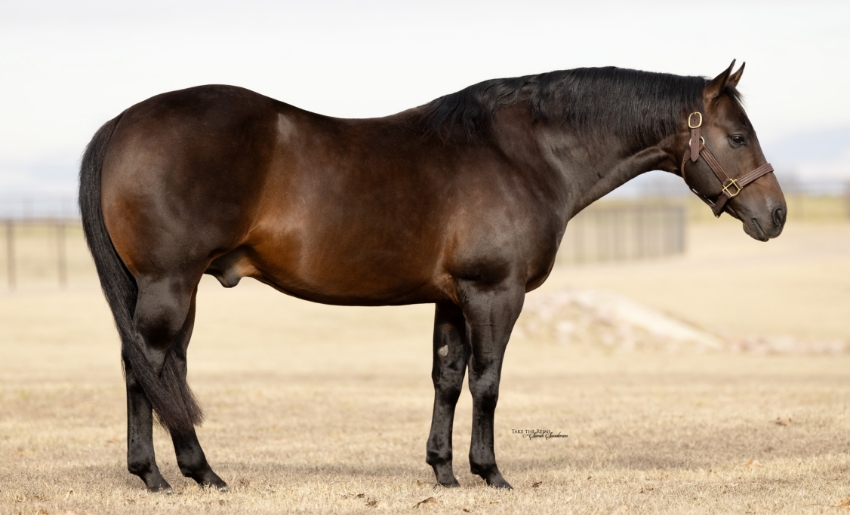
Magicality
Magicality (Very Smart Remedy x Magical Lena) proudly owned by The Home Ranch and shown by Gusti Buerger, with Lifetime earnings over $173,971. In 2022 he was 1st Place in the EquiStat 10-Year All-Industry Horse, and placed 2nd for 2023 as well as placing in the top 10 for Reined Cow Horse Jr Sire. Magicality has multiple NRCHA, NRHA & RCHA Open & Non-Pro Champion and Reserve Championships. With a limited foal crop, his offspring are proving to be like their sire with multiple champion & reserve championship titles to their name and earnings over $219,000. Most recently his top earning offspring Quizzicality (LTE $61,457) & Gusti competed in the 2024 Run For a Million winning $14,000.
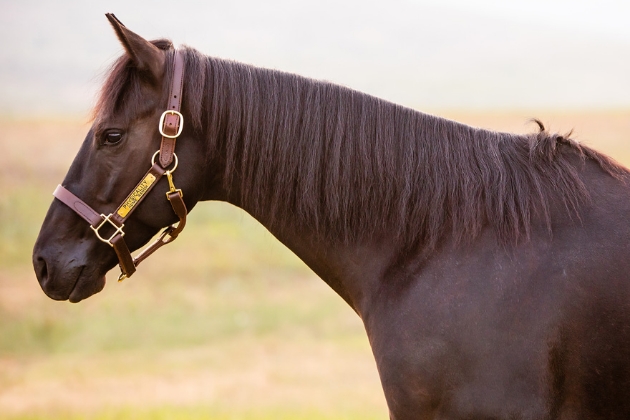
Blackjack
Known around the barn as “Blackjack”: This 5-year-old black gelding by “Magicality” out of Shirley Shine is all business. He may not be the most outgoing horse in the stable, but he loves his job. “He’s just a super physical horse, incredibly athletic, physical, can kill a turn,” Buerger says. And although he’s well-rounded, he shows particular talent in fence work. Blackjack has already been showing in the Derbies—in 2020, he placed in both Idaho and Utah last year, in the Limited and Novice Horse divisions. And since he is still maturing, Buerger thinks he will only improve as he gains experience and confidence.
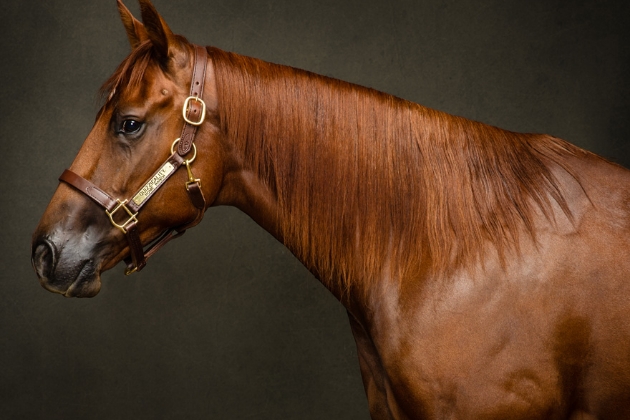
Cinnamon
A sorrel 4-year-old gelding and full brother to Blackjack, Cinnamon is a lover—sensitive and in-your-pocket. And he’s just laid back enough to fool the competition. For such an elite athlete, he’s surprisingly quiet when out for a casual ride, but the minute he steps into the arena he turns it on, showing off his fancy movement and super-tuned-in cow sense. “He’s got a heart of gold and he tries so hard,” Buerger says. Like his brother, Cinnamon is a good all-around competitor, but he excels at the herd work. In 2020, he placed in the Limited Open division at the Reno Snaffle Bit Futurity and narrowly missed the Limited Open finals at the Fort Worth Snaffle Bit Futurity.
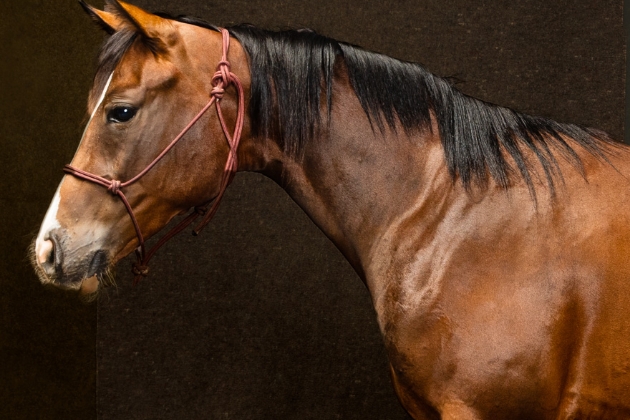
Margo
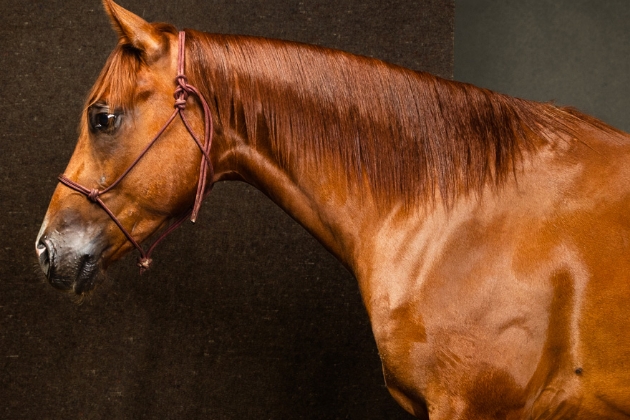
Jim
Gusti Buerger
After 15 years of training with some of the biggest names in the National Reined Cow Horse Association, Gusti Buerger returned to her home state to lead The Home Ranch’s performance horse program. With her standout horsemanship skills and expert knowledge of the discipline, she works with young horses-in-training five days per week, developing the right regimens for their experience, ability, and personality. But even the most successful, well-muscled horses don’t get there with athleticism alone. Thanks to her ranching childhood, Buerger has a deep-seated, lifelong passion for her equine partners — and it’s that love and dedication that truly makes a difference.
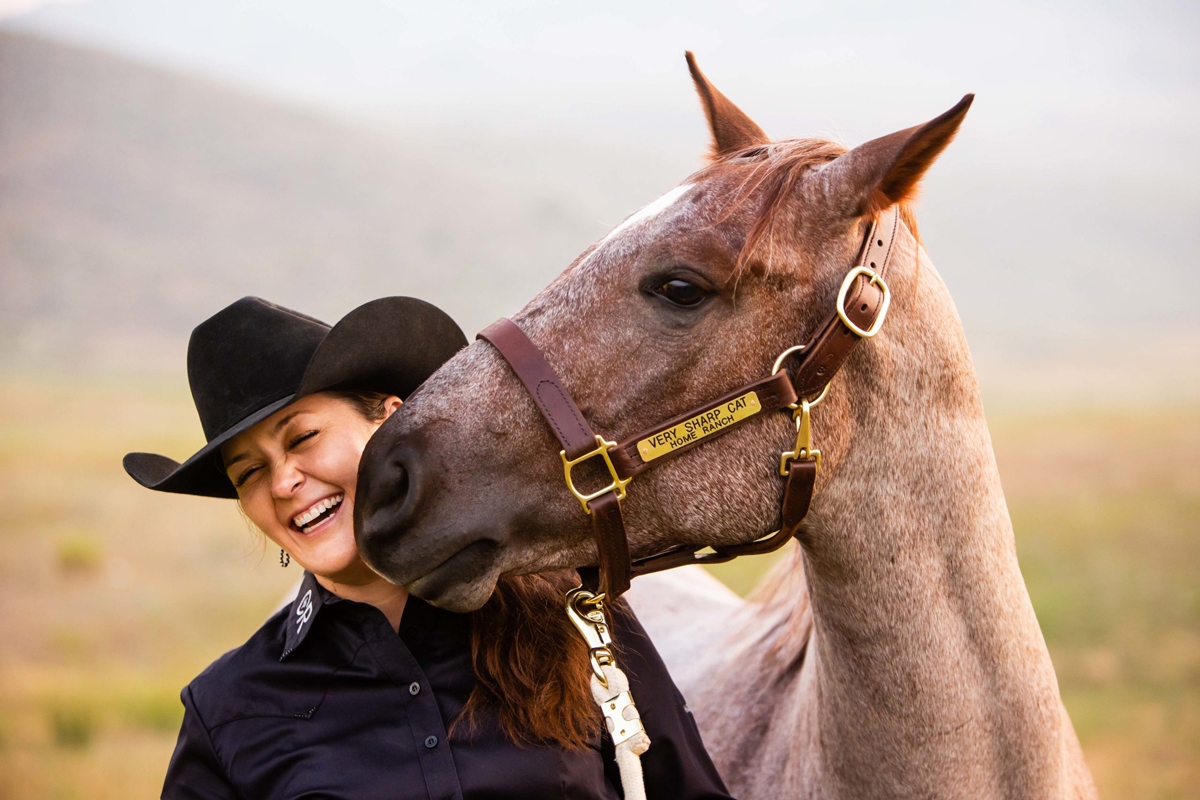
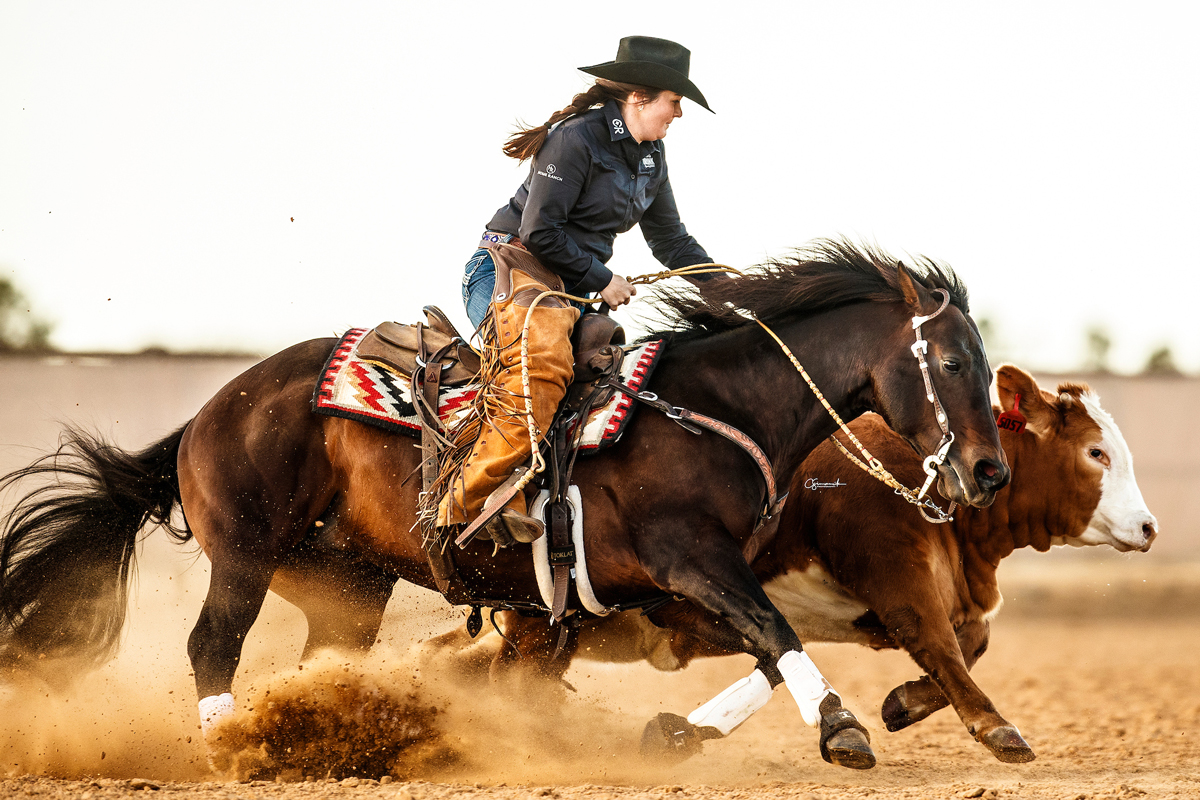
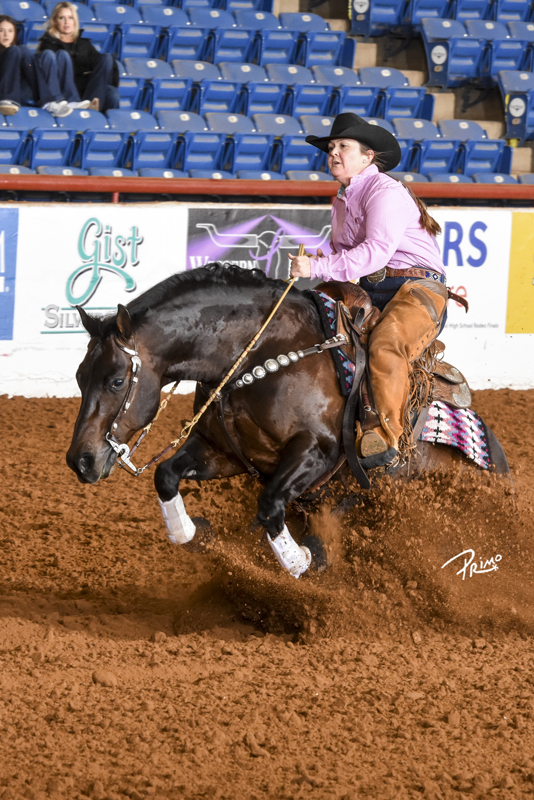
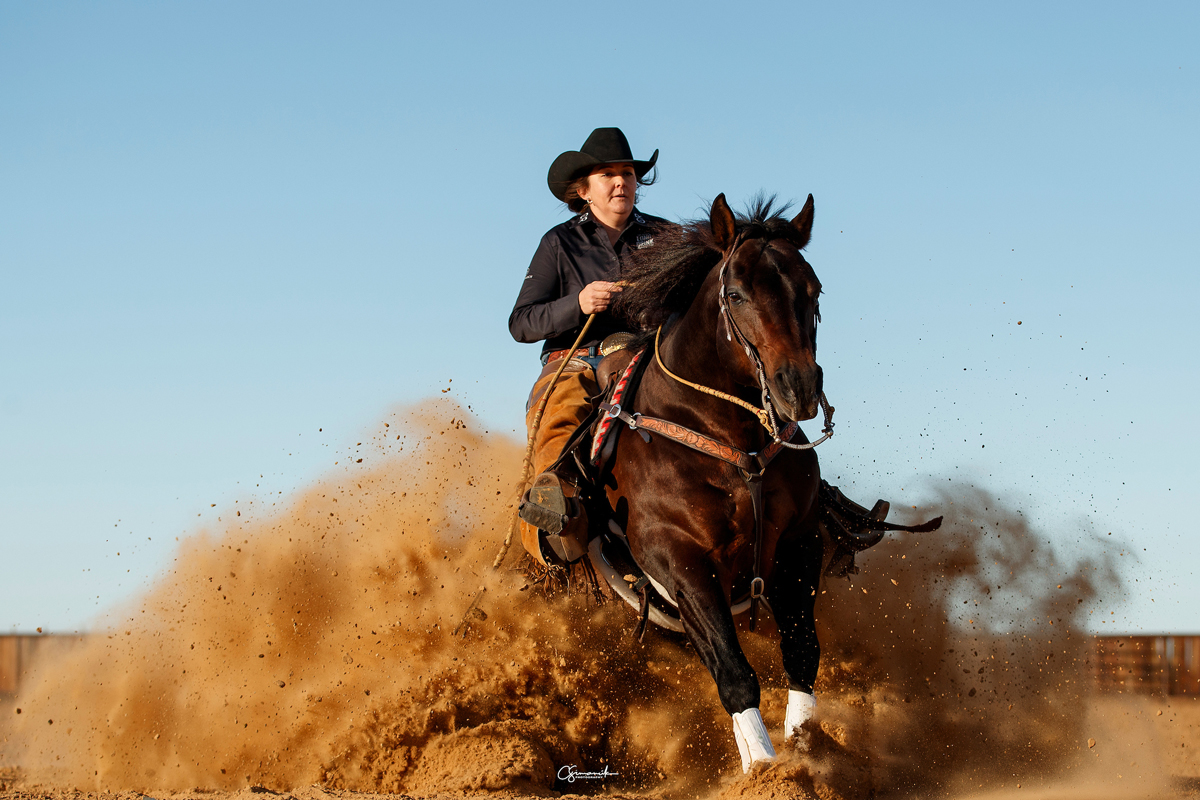
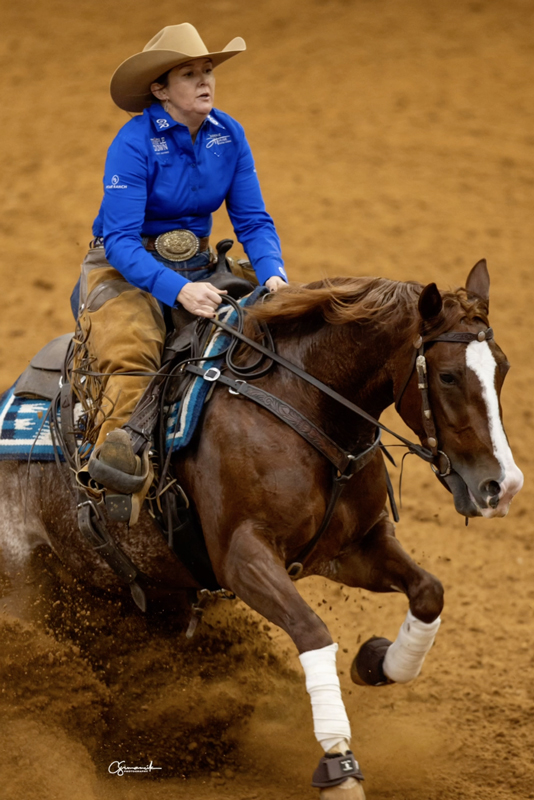
Meet Our Ranch Horses
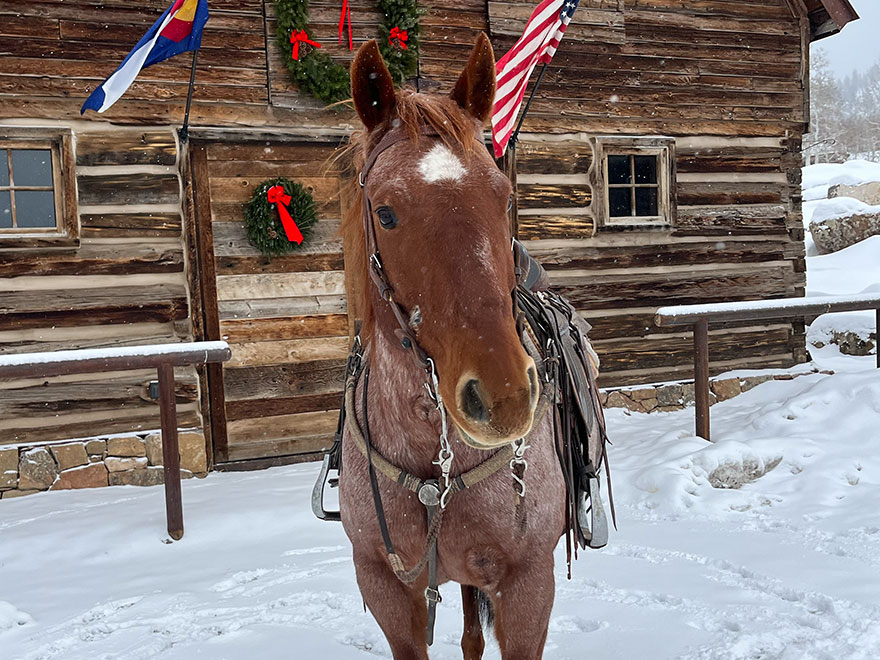
Skeeter
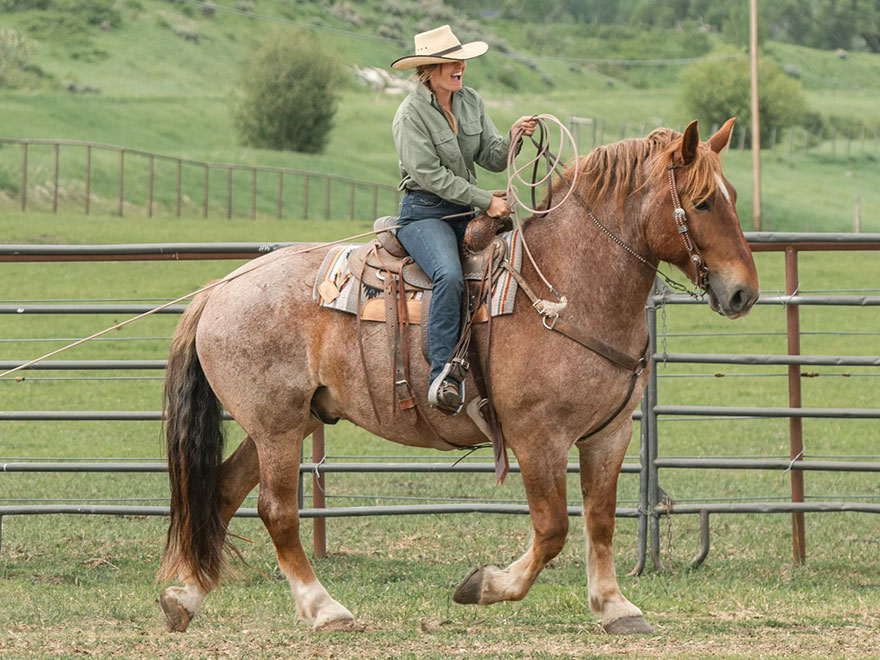
Omaha
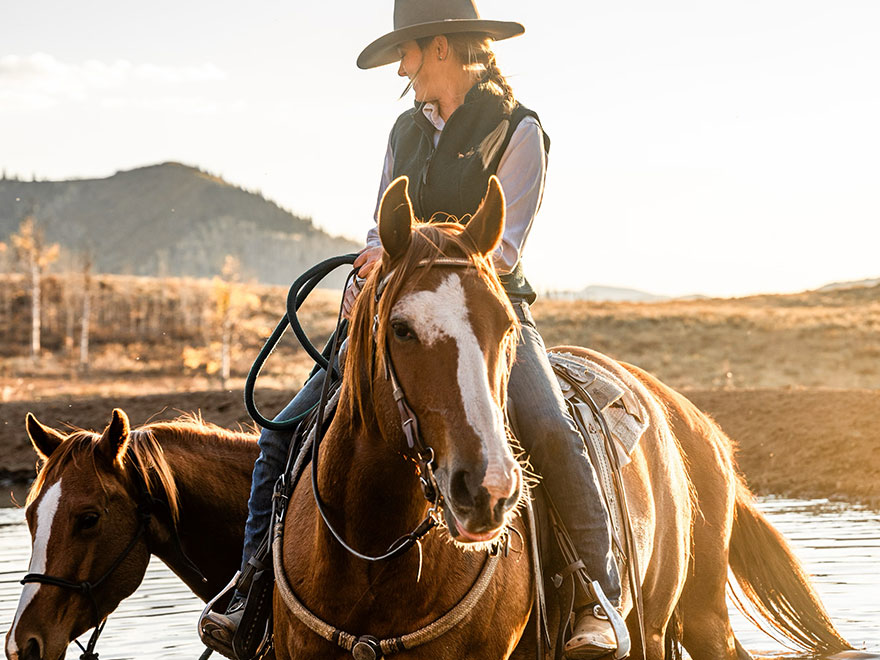
Mike
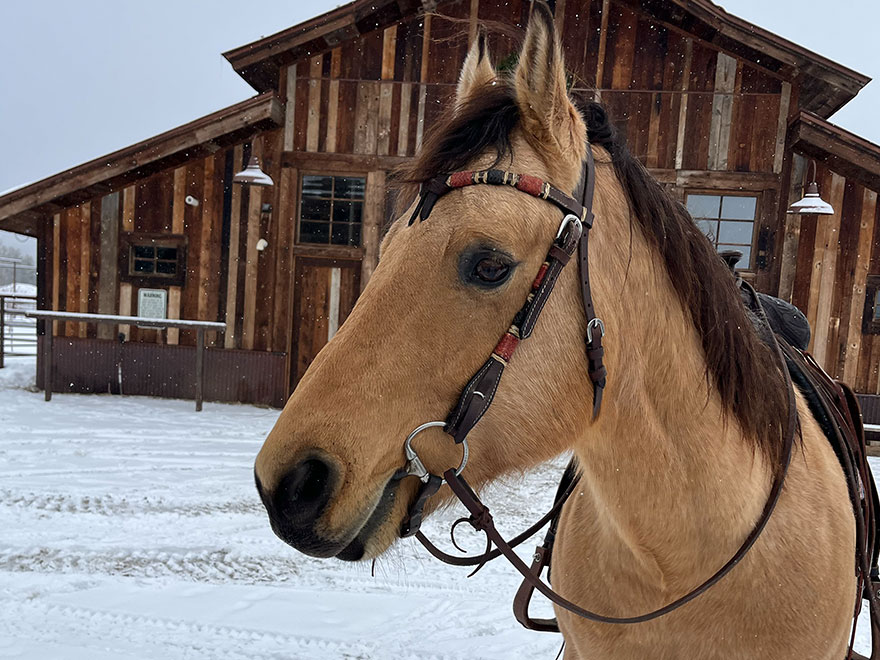
Buddy
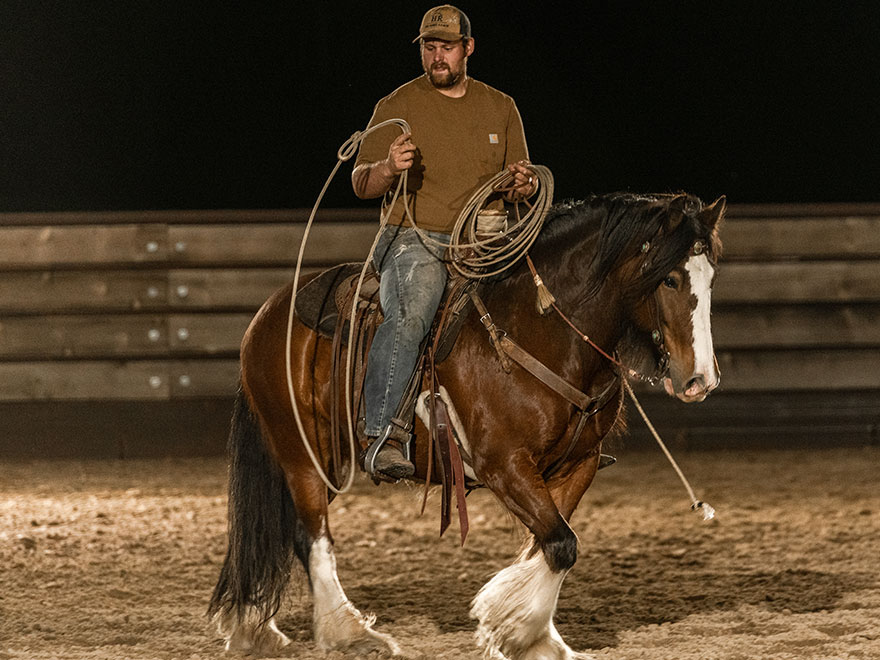
Bernie
